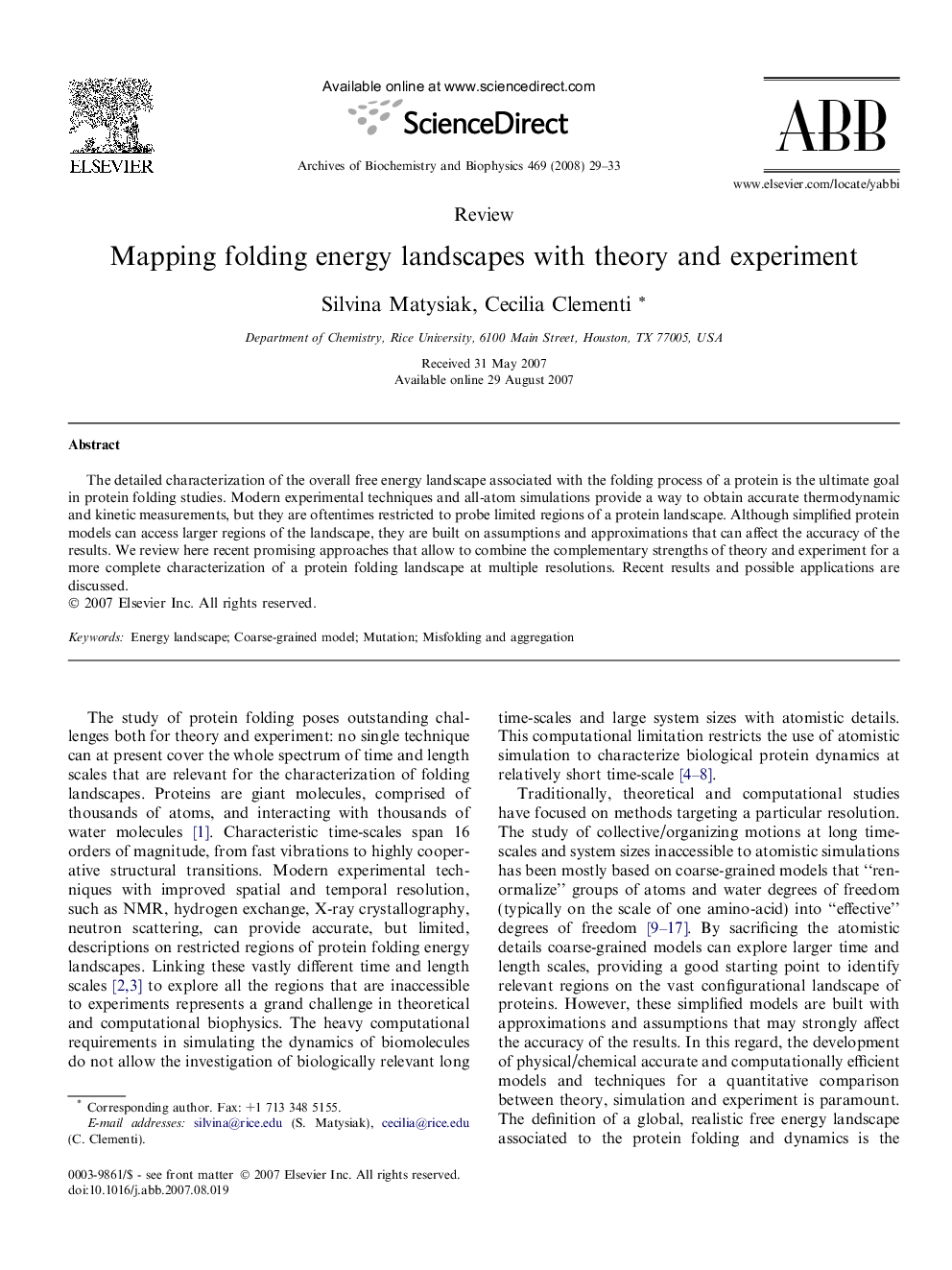| Article ID | Journal | Published Year | Pages | File Type |
|---|---|---|---|---|
| 8292009 | Archives of Biochemistry and Biophysics | 2008 | 5 Pages |
Abstract
The detailed characterization of the overall free energy landscape associated with the folding process of a protein is the ultimate goal in protein folding studies. Modern experimental techniques and all-atom simulations provide a way to obtain accurate thermodynamic and kinetic measurements, but they are oftentimes restricted to probe limited regions of a protein landscape. Although simplified protein models can access larger regions of the landscape, they are built on assumptions and approximations that can affect the accuracy of the results. We review here recent promising approaches that allow to combine the complementary strengths of theory and experiment for a more complete characterization of a protein folding landscape at multiple resolutions. Recent results and possible applications are discussed.
Related Topics
Life Sciences
Biochemistry, Genetics and Molecular Biology
Biochemistry
Authors
Silvina Matysiak, Cecilia Clementi,
